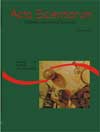Educação e justiça nas utopias renascentistas
Resumo
A peculiar leitura de Platão feita no século XVI é uma das chaves para compreensão da gênese do pensamento moderno. Os utopistas são o melhor exemplo disso. More, autor da Utopia, Tomás Campanella, com sua Cidade do Sol e Francis Bacon e sua Nova Atlântida, tematizam as questões relativas à projeção de uma sociedade ideal, alguns dos temas mais importantes da filosofia política do período. Este artigo tem como objetivo discutir a idéia de justiça nos três autores e, para tal, será necessário identificá-las com o conceito platônico de justiça, conforme aparece na República, visto que essa obra é considerada o arquétipo de todas as utopias posteriores a ela.Downloads
DECLARAÇÃO DE ORIGINALIDADE E DIREITOS AUTORAIS
Declaro que o presente artigo é original, não tendo sido submetido à publicação em qualquer outro periódico nacional ou internacional, quer seja em parte ou em sua totalidade.
Os direitos autorais pertencem exclusivamente aos autores. Os direitos de licenciamento utilizados pelo periódico é a licença Creative Commons Attribution 4.0 (CC BY 4.0): são permitidos o acompartilhamento (cópia e distribuição do material em qualqer meio ou formato) e adaptação (remix, transformação e criação de material a partir do conteúdo assim licenciado para quaisquer fins, inclusive comerciais.
Recomenda-se a leitura desse link para maiores informações sobre o tema: fornecimento de créditos e referências de forma correta, entre outros detalhes cruciais para uso adequado do material licenciado.


























